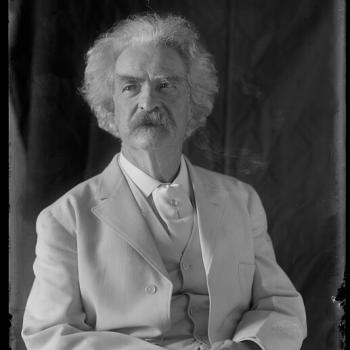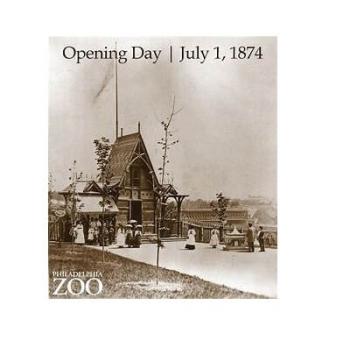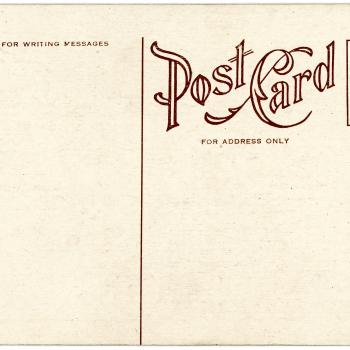Students consider why there are so many different dates associated with the Declaration of Independence and why the nation's birthday is celebrated on July 4.

It's Independence Day! Or is it?

Grades
|
Annual fence-painting contests take place in Hannibal, Missouri.
3 - 8
Calendar Activity
| Author & Text
A scene from one of Twain's works is chosen and students map the story setting using the Story Map. Setting is then discussed as a class.

Grades
|
The first U.S. zoo opened in Philadelphia in 1874.
1 - 6
Calendar Activity
| Historical Figure & Event
Students consider how zoos have changed over the past century and design their own zoo of the future using drawings, posters, dioramas, or other displays.

Grades
|
New and Noteworthy Books for Teens
6 - 12
Tune in to hear book talks on some of the best titles published in 2009-titles that will keep teens reading once summer is over.

Grades
|
A Conversation with Matt de la Peña
6 - 12
Tune in to hear Matt discuss some of the thinking behind his newest novel, We Were Here.

Grades
|
Connecting with the Classics
6 - 12
Tune in to hear about recent titles that retell or reinvent classic stories, others that reimagine the lives of classic authors, and still others that invoke classic texts in contemporary storylines.

Grades
|
Introducing the Amelia Elizabeth Walden Award
6 - 12
Learn more about the five finalists for the first annual Amelia Elizabeth Walden Award.

Grades
|
Author E.B. White was born on this day in 1899.
K - 5
Calendar Activity
| Author & Text
Author E.B. White, most well-known for his famous children's book, Charlotte's Web, received high acclaim and awards for many of his works of fiction.
Grades
|
Critical Literacy at the Intersections of Sport and Society
6 - 12
Online Professional Development

Grades
|
Writing Acrostic Poems with Thematically Related Texts in the Content Areas
2 - 5
Lesson Plan
| Standard Lesson
Students read thematically related texts, scaffolded from simple to complex, to help them gather necessary concept vocabulary and background knowledge in a content area. They then write acrostic poems to organize and present their learning in a creative way.

Grades
|
Book Report Alternative: Creating Postcards for Fictional Settings
4 - 7
Lesson Plan
| Standard Lesson
In this alternative to the traditional book report, students report on their novel choices that feature journeys by creating postcards one of the settings featured in their books.

Grades
|
Style-Shifting: Examining and Using Formal and Informal Language Styles
9 - 12
Lesson Plan
| Standard Lesson
Students observe how language features vary when shifting from an informal to a formal style or vice versa. By engaging in style shifting in both speech and writing, students become aware of how we all change language styles depending on the contexts in which we are speaking or writing.

Grades
|
Analyzing First-Person Narration in Sharon Draper's Out of My Mind
5 - 8
Lesson Plan
| Standard Lesson
Students explore the different facets of complexity in the compelling first-person narrator in Sharon Draper's Out of My Mind.

Grades
|
Sharing Information about Careers with Infographics
6 - 9
Lesson Plan
| Standard Lesson
Students research careers of their own choosing. Then using Piktochart, students create their own infographics to illustrate their research.

Grades
|
Captioning the Civil Rights Movement: Reading the Images, Writing the Words
2 - 8
Lesson Plan
| Standard Lesson
Teachers guide students to carefully view images from the Civil Rights Movement and write captions that accurately describe the images and/or their probable purposes.

Grades
|
Highlighting Out-of-School Language Expertise with Pop Culture Dictionaries
6 - 12
Lesson Plan
| Standard Lesson
Students compose dictionary entries for words and phrases from pop culture texts (e.g., television shows, movies, lyrics, YouTube videos), connecting their definitions to their personal use of the terms.

Grades
|
"Three Stones Back": Using Informational Text to Enhance Understanding of Ball Don't Lie
8 - 11
Lesson Plan
| Standard Lesson
Students engage in a close reading of a passage from Matt de la Pena's novel Ball Don't Lie before researching important background information to assess the accuracy of the claims made by a character.

Grades
|
Understanding Irony
8 - 10
Lesson Plan
| Standard Lesson
This lesson enables students to define the three types of irony, identify and differentiate among examples of the types of irony, and demonstrate their understanding of each type.

Grades
|
A Picture IS Worth a Thousand Words: Using Infographics to Illustrate How-to Writing
7 - 10
Lesson Plan
| Standard Lesson
Students write step-by-step instructions on topics of their own choosing. Then using Piktochart, students create their own infographics to illustrate their instructions.

Grades
|
Picture This: Combining Infographics and Argumentative Writing
7 - 10
Lesson Plan
| Standard Lesson
After researching topics that the students have chosen, students write argumentative essays. Then, using Piktochart, students create their own infographics to illustrate their research.